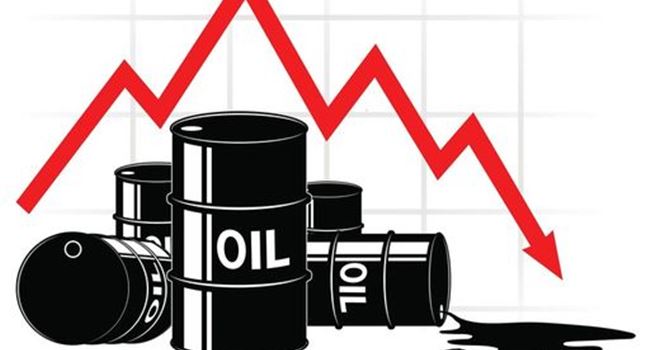Business
Oil prices fall after China economic data release; Bonny Light adds $0.47

Oil prices slid on Monday after China’s third-quarter economic growth did not rise as much as expected, underlining worries that rising coronavirus infections around the world are hurting demand in the world’s biggest oil importer.
China, the world’s second-largest economy, grew by 4.9% in the third quarter relative to the corresponding period of last year, below analysts’ forecast of 5.2%, official data showed. Refiners in the country lowered their processing rates last month.
Brent crude for December dropped 6 cents or 0.14% to $42.87 a barrel by 10:10 West Africa Time. U.S. West Texas Intermediate crude (WTI) for November was down by 4 cents or 0.10% to $40.84 a barrel. The contract is due to expire on Tuesday.
Bonny Light, Nigeria’s premium crude grade, advanced by 47 cents or 1.13% to $41.96 at the last session on Friday. But Qua Iboe, another major national oil grade, shed 68 cents or 1.62% to close at $41.33
Brent climbed by 0.2% last week while WTI gained 0.7% following a drop in crude and oil product stockpiles in the United States, the world’s biggest oil consumer.
Read also: Oil prices fall over coronavirus resurgence, strong dollar; Bonny Light sheds $0.53
The Chinese figures indicated expansion in goods and services is waning while statistics on crude processing was “disappointing,” Howie Lee, economist at Oversea-Chinese Banking Corp, said.
“We’re likely going to see prices being soft for the rest of the day,” Lee said.
China’s oil-buying spell early in the year is anticipated to fall in the fourth quarter amid big inventories and lower import quotas for independent refiners.
Investors have their eyes set on Joint Ministerial Monitoring Committee (JMMC) meeting of the OPEC+ group holding later on Monday, Lee added.
OPEC+ is comprised of the Organization of the Petroleum Exporting Countries and allies led by Russia.
The JMCC could determine whether to delay plans to taper its current output cuts of 7.7 million barrels per day (bpd) by 2 million bpd beginning in January.
Prices are not likely to rebound on a delay since that has been priced in by the market, Lee said.
A meeting of the OPEC+ Joint Technical Committee last week reported dimmer prospects of fuel demand by reason of concerns that prolonged new wave of coronavirus pandemic and a leap in Libyan supply could throw the oil market into a surplus next year.
“There are growing calls for OPEC+ to scrap their current plan of easing output cuts,” ING analysts said in a note.
Join the conversation
Support Ripples Nigeria, hold up solutions journalism
Balanced, fearless journalism driven by data comes at huge financial costs.
As a media platform, we hold leadership accountable and will not trade the right to press freedom and free speech for a piece of cake.
If you like what we do, and are ready to uphold solutions journalism, kindly donate to the Ripples Nigeria cause.
Your support would help to ensure that citizens and institutions continue to have free access to credible and reliable information for societal development.






















